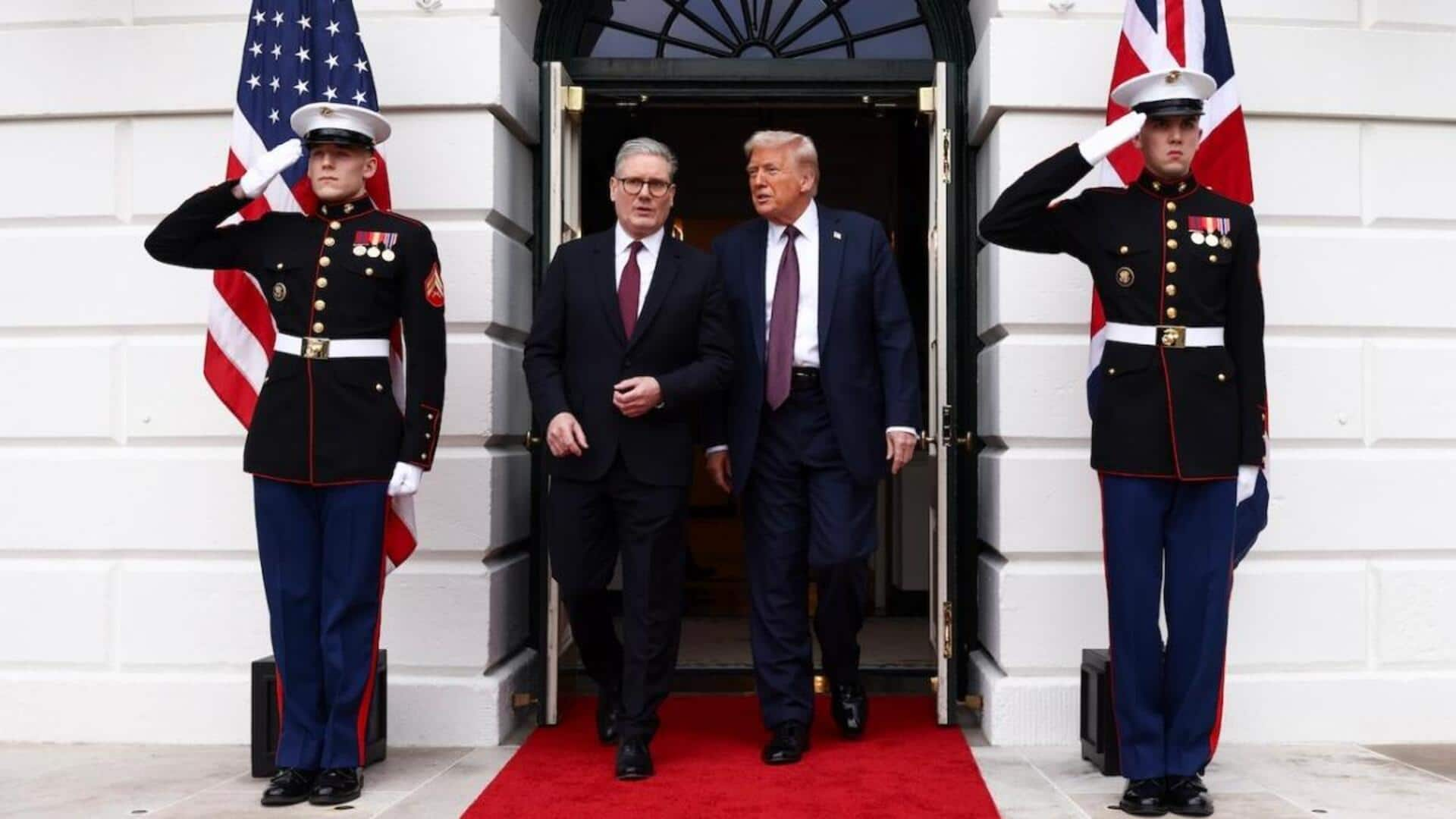
US-UK to sign historic nuclear deal: What's on the agenda
What's the story
The United Kingdom and the United States are set to sign a historic agreement to fast-track nuclear power development. The deal, likely to be finalized during US President Donald Trump's state visit this week, is expected to create thousands of jobs and bolster Britain's energy security. UK Prime Minister Keir Starmer hailed the partnership as a step toward a "golden age of nuclear," positioning both nations at the "forefront of global innovation."
Deal details
Deal aims to reduce average licensing period
The newly proposed Atlantic Partnership for Advanced Nuclear Energy aims to expedite the construction of new nuclear power stations in both countries. The deal seeks to simplify regulatory approvals, reducing the average licensing period for nuclear projects from four years to just two. This would significantly speed up the establishment of these facilities and contribute toward meeting energy needs more efficiently.
Economic impact
Deal to boost commercial partnerships
The deal also focuses on boosting commercial partnerships between British and American companies. A major proposal involves US nuclear group X-Energy and UK energy company Centrica's plan to build up to 12 advanced modular nuclear reactors in Hartlepool. The project could power 1.5 million homes and create as many as 2,500 jobs. The overall program could be worth up to £40 billion (roughly $50 billion).
Global partnerships
Deal also includes international collaborations
The deal also includes international collaborations with firms like Last Energy and DP World on a micro modular reactor at London Gateway port. The project has £80 million (roughly $100 million) in private investment. Holtec, EDF, and Tritax are also planning to convert the former Cottam coal-fired plant into a nuclear-powered data center hub. This project could create thousands of high-skilled construction jobs as well as permanent positions in long-term operations.
Research collaboration
Nuclear will power our homes with clean energy: Ed Miliband
Along with power generation, the new partnership also includes joint efforts on fusion energy research. It aims to end UK and US dependence on Russian nuclear material by 2028. Commenting on the agreement, Energy Secretary Ed Miliband said, "Nuclear will power our homes with clean, homegrown energy and the private sector is building it in Britain." US Energy Secretary Chris Wright called it a "nuclear renaissance," emphasizing its role in enhancing energy security and meeting global power demands.